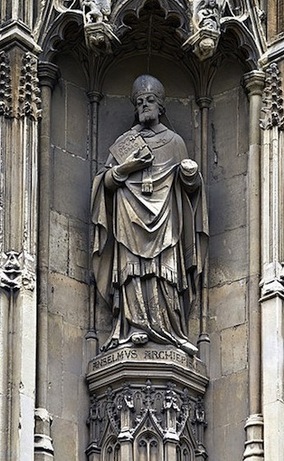 You might be surprised to read this, not all theologians root their work in theology in prayer, personal and communal, of personal devotion, liturgical and lectio divina. I am somewhat confident that some Catholic theologians have a beautiful relationship with the Divine Majesty; that they care, in an intense way, about their spiritual lives through a regular practice of daily prayer, meditation, by availing themselves to the sacraments, attendance at Mass and even the daily singing of the Divine Office. However, you would never know that theologians, particularly Catholics, have rely on prayer for their work because rarely talk about their experiences of prayer. A notable Jesuit spiritual director and writer once said that if you can't articulate the pattern of your prayer, you aren't praying.
You might be surprised to read this, not all theologians root their work in theology in prayer, personal and communal, of personal devotion, liturgical and lectio divina. I am somewhat confident that some Catholic theologians have a beautiful relationship with the Divine Majesty; that they care, in an intense way, about their spiritual lives through a regular practice of daily prayer, meditation, by availing themselves to the sacraments, attendance at Mass and even the daily singing of the Divine Office. However, you would never know that theologians, particularly Catholics, have rely on prayer for their work because rarely talk about their experiences of prayer. A notable Jesuit spiritual director and writer once said that if you can't articulate the pattern of your prayer, you aren't praying.Yesterday I heard Cardinal William Levada speak at More House of Yale University on a new apologetic for the new evangelization and it struck me that in addition to neglecting the role of suffering as part of framing this a new apologetic, he neglected to speak about personal and liturgical prayer. No doubt that he say you have to pray, but the absence of speaking about the place of prayer in apologetics and evangelization is telling.
Just as a priest who never prays the Divine Office, attend to the sacrament of love and Mercy, see a spiritual director, practice lectio divine, and do spiritual reading, theologians who likewise neglect these things aren't really helping us to build a culture of prayer, study, service and community. That is, the proclamation of the gospel will be stunted.
All this comes to mind because of piece published by Crisis magazine on Saint Anselm of Canterbury, the great medieval Benedictine monk, priest, bishop, theologian, and author. His liturgical memorial was on April 21st, but since it was a Sunday this year, those of who claim a Benedictine life and spirit would have celebrated the feast day today. John Bequette argues that what stands out for us about Saint Anselm is close relationship with the Paschal Mystery, especially the cross of Jesus. And that this close relationship with the Paschal Mystery is the direct result of a dynamic adherence to prayer. As a monk and a priest Anselm would have spent significant time in personal prayer and he'd be known to have offered the Mass. The search for God is impossible unless you enter into a search that is framed by constant prayer. None of what a theologian writes or says is credible unless there is a confidence that is based in a relationship with the Triune God.
I would recommend reading "Saint Anselm of Canterbury: Scholarship Rooted in Prayer." I would also recommend as a way of understanding your own life asking, what concrete difference does an experience of prayer have in what I do, how I do it, for who I do it, and why?
More than anything else, John Bequette reminds us that great theologians and saints always point to God because they really know God.
Prayers for the monks of the Pontifical University of Saint Anselm (Rome) and Saint Anselm Abbey (Washington, DC). May God, through the intercession of Saint Anselm, abundantly bless their lives of work and prayer.


Leave a comment